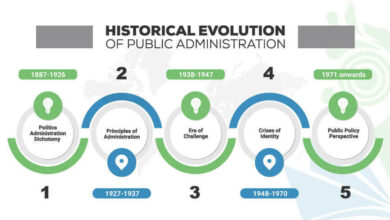Understanding How the Rules of Administrative Agencies Can be Impacted You
In the complex tapestry of government operations, administrative agencies stand as pivotal players entrusted with the responsibility of executing and upholding the laws and regulations that govern various sectors. As these agencies hold sway over crucial matters ranging from environmental protection to healthcare standards, comprehending how their rules function is of paramount importance. In this article, we delve into the nuanced realm of administrative agency rules, shedding light on how they can significantly influence individuals, businesses, and society at large.
Demystifying Administrative Agency Rules
At the core of administrative agencies lie their rules, which serve as the bedrock for implementing laws passed by legislatures. These rules hold the potential to shape the manner in which laws are translated into actionable guidelines that affect daily life. Whether you’re an entrepreneur seeking to navigate industry regulations or a concerned citizen aiming to understand your rights, a clear grasp of these rules is vital.

1. Authority Rooted in Statutes
Administrative agencies derive their authority from enabling statutes passed by legislatures. These statutes delineate the agency’s scope, objectives, and limitations, essentially outlining the framework within which the agency operates. Understanding this statutory foundation provides insight into the agency’s mandate and the legal boundaries within which it operates.
2. Rulemaking: The Blueprint for Implementation
The heart of administrative agency activities lies in the rulemaking process. These rules fill in the gaps left by broader legislative language, offering explicit instructions for enforcing laws. For instance, if a legislative act mandates environmental protection but doesn’t specify emission limits for industries, the relevant agency would establish rules to define these limits, effectively translating legislative intent into actionable guidelines.
Read More: What is Administration?
3. Public Participation via Notice and Comment
In many jurisdictions, the rulemaking process involves public participation through the “notice and comment” system. Proposed rules are published for public review, allowing stakeholders, businesses, and citizens to provide feedback. This ensures that regulations are well-rounded, incorporating diverse perspectives and mitigating unintended consequences.
4. Transparency and Accountability
Administrative agencies operate in the public interest and are expected to be transparent and accountable. They are often required to provide information about their actions, decisions, and rulemaking processes. This transparency fosters trust among the public and underscores the agency’s commitment to fair governance.
5. Adjudication: Balancing Dispute Resolution
Beyond rulemaking, administrative agencies frequently engage in adjudication—resolving disputes related to their purview. This can involve hearings, gathering evidence, and issuing decisions. By offering a structured platform for conflict resolution, agencies contribute to the overall stability of the sectors they oversee.
Read More: 7 Reasons Why You Should Study Economics
6. Ensuring Due Process
To safeguard the rights of individuals and entities, administrative agencies adhere to due process principles. This ensures that affected parties are given proper notice, an opportunity to present their case, and impartial decision-making. This commitment to due process underlines the fair and just functioning of administrative agencies.
7. Consistency, Fairness, and Enforcement
Consistency in enforcing rules is a hallmark of administrative agencies. They strive to treat similar cases uniformly, fostering a sense of fairness and predictability. The enforcement mechanisms, which can include inspections, investigations, and penalties, contribute to maintaining compliance with regulations.
8. Review and Appeal Mechanisms
Administrative decisions aren’t etched in stone. Many jurisdictions offer review and appeal mechanisms to ensure that agency decisions are subject to further scrutiny. This can involve internal appeals within the agency or external reviews by courts or other entities, depending on the legal framework.
Embracing Knowledge for Empowerment
In a world where administrative agencies wield significant influence over diverse sectors, familiarizing oneself with their rules empowers individuals and entities to navigate the regulatory landscape with confidence. As rules evolve, staying informed about their implications is essential for informed decision-making, effective compliance, and active participation in shaping the future of industries and society.
Conclusion
The rules of administrative agencies form the cornerstone of effective governance. From shaping regulations to ensuring due process, these rules impact individuals, businesses, and the broader society. By unraveling the intricacies of administrative agency rules, we unlock a deeper understanding of how our world is governed, empowering us to engage thoughtfully with the regulations that shape our lives.



